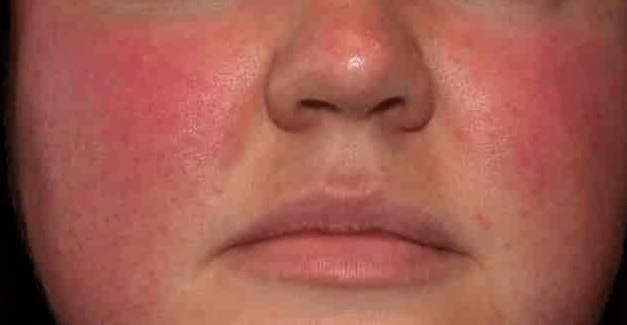If you’ve been struggling with the redness, bumps, and irritation that come with rosacea, you’re not alone. This common skin condition affects millions of people worldwide and can significantly impact one's confidence. Fortunately, with the right treatment plan, rosacea can be managed effectively. Whether you're looking for relief from flare-ups or a long-term solution to maintain clear, calm skin, finding the Best Dermatologist in Dubai can help you discover personalized strategies for treating this condition. In this article, we’ll explore dermatologist-approved solutions to treat rosacea, from skincare routines to medical treatments.

Understanding Rosacea: What Is It?
Rosacea is a chronic skin condition that primarily affects the face. It causes redness, visible blood vessels, and sometimes small bumps or pimples. While the exact cause is still unclear, factors such as genetics, environmental triggers, and lifestyle choices are believed to play a role. Rosacea often starts with a tendency to blush easily but can worsen over time if not properly managed.
Dermatologist-Approved Solutions to Treat Rosacea
If you're looking for effective ways to manage rosacea, dermatologists offer several treatment options to reduce flare-ups and maintain healthy skin. Here are some key solutions:
1. Gentle Skincare Routine
One of the first steps to controlling rosacea is adopting a gentle skincare routine. Harsh products can exacerbate inflammation, so it’s important to avoid irritating ingredients like alcohol, fragrances, or abrasive scrubs. Dermatologists recommend using mild, non-comedogenic products designed for sensitive skin.
Tips for a gentle skincare routine:
- Use a gentle, hydrating cleanser that doesn’t strip the skin.
- Avoid hot water when washing your face, as it can trigger redness.
- Apply a soothing, alcohol-free moisturizer daily to lock in hydration.
- Include a broad-spectrum sunscreen with SPF 30 or higher to protect your skin from sunburn, which can trigger rosacea flare-ups.
2. Topical Medications
Topical medications are often a first-line treatment for rosacea. Dermatologists may prescribe creams or gels that help reduce inflammation, redness, and acne-like breakouts. Common options include:
- Metronidazole: This anti-inflammatory gel helps reduce redness and irritation.
- Azelaic Acid: Known for its antimicrobial properties, it helps in reducing bumps and pimples associated with rosacea.
- Ivermectin: This topical cream works by reducing inflammation and killing skin mites, which are thought to contribute to rosacea in some cases.
3. Oral Medications
In cases where topical treatments aren't enough, dermatologists may recommend oral medications. These can be particularly helpful for more severe cases of rosacea that involve persistent redness or acne-like breakouts.
- Oral Antibiotics: Drugs like tetracycline, doxycycline, or minocycline can help reduce inflammation and treat the acne-like symptoms of rosacea.
- Oral Isotretinoin: For the most severe cases, oral isotretinoin can be used under strict medical supervision. This medication works by reducing oil production and controlling flare-ups.
4. Laser and Light Therapy
If topical and oral medications are not providing the desired results, laser treatments can offer a more permanent solution for managing rosacea. Dermatologists often recommend light-based therapies to target and reduce the visibility of blood vessels and redness.
- Pulsed Dye Laser (PDL): PDL targets visible blood vessels, helping to reduce redness and the appearance of broken capillaries.
- Intense Pulsed Light (IPL): This treatment uses light to penetrate the skin and reduce inflammation, improving the overall tone and texture of the skin.
These treatments are non-invasive and often provide significant improvement with minimal downtime.
5. Lifestyle Modifications
While medications and treatments are essential, lifestyle changes can also play a crucial role in managing rosacea flare-ups. Dermatologists advise avoiding triggers that can worsen symptoms. Common triggers include:
- Sun exposure: Always wear sunscreen and avoid prolonged sun exposure.
- Hot or cold weather: Try to avoid extreme temperatures that can irritate your skin.
- Spicy foods and alcohol: Both can trigger flushing in people with rosacea.
- Stress: Practice relaxation techniques such as yoga or meditation to help manage stress levels.
Managing Rosacea Long-Term
Treating rosacea isn’t a one-time fix—it requires ongoing care. With the right combination of treatments, skincare products, and lifestyle adjustments, you can keep rosacea under control and reduce flare-ups. Regular visits to a Dermatologist Dubai will help you track your progress and adjust your treatment plan as necessary.

Conclusion
Rosacea can be a challenging condition, but with the proper treatment, it’s possible to manage symptoms and maintain clear, healthy skin. Whether you're dealing with the early signs of rosacea or have been living with it for years, dermatologists offer a range of effective solutions. Remember, every case of rosacea is different, so it's important to consult with the Best Dermatologist in Dubai to develop a tailored plan that works for your unique needs. With the right approach, you can take control of your rosacea and enjoy smoother, calmer skin.